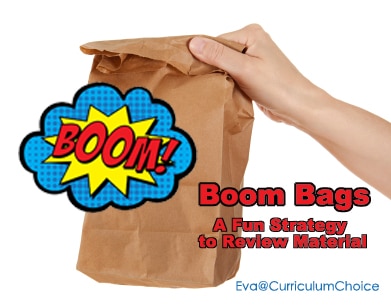Before I was a mother, I worked full-time in the public schools as a science specialist. Now that I am a homeschool mom, I coordinate numerous co-ops and group activities for our local homeschool community. I love working with youth – particularly middle school aged students. I have recently returned to the public school part time, working as a substitute teacher a few days each month.
 Classroom Games
Classroom Games
Whether I am in a brick and mortar classroom or in a relaxed, homeschool setting, I am always looking for fun ways to keep kids engaged in learning activities. Occasionally, we just want to let off a little energy and fill time during a transition. Over the years, I have collected several games that I love to pull out of my bag of tricks because they are always a hit with the kids.
Silent Ball
For Silentball, a palm-sized stress ball works best. Students sit on their desks (what fun!) and take turns tossing the ball to one another. The rules are simple and if you break one, you must return to your seat.
- No talking is allowed, though the thrower is expected to say the name of one specific student to whom she/he intends to throw the ball. If you speak otherwise, you’re automatically out.
- The thrower can not toss the ball to the same person from whom they just received it.
- If the students throws it incorrectly (with no way the catcher can catch it), the thrower is out (and sits in his chair).
- If it is a good throw, but the catcher doesn’t catch it (and hold on to it), then the catcher is out.
- You must catch the ball according to the specifications stated below (see #7).
- Play continues until only one participant remains standing.
- To increase the difficulty, different limitations can be added to each round:
- two hands permitted but not up against your body
- single non-dominant hand, up against your body permitted
- single hand, dominant hand but not up against your body
To make this game more educational consider reading a definition aloud prior to each throw. The student that catches the ball should then say the word you have just defined. If the student didn’t catch it or couldn’t state the correct definition, he/she is out. Continue play until all of the words have been defined.
Grudge Ball
- Split your class into 5 or 6 teams, depending on how fast you want the game to go.
- Each team begins the game with 10 “X’s”.
- Each group is asked a question. If they get it right they automatically get to erase two X’s from the board. They can take it from one team or split it. They can not commit suicide (take X’s from themselves).
- Before they take off these X’s, though, they have a chance to increase their ability to get the other teams to hate them. They get to shoot the Nerf ball. I set up two lines with masking tape. One is a two point line while the other is a three pointer.
- If they shoot from the two point line and get it in, they can take four X’s off the board. If they go from the three point line, and make it in, they can take five off the board. If they don’t make it they still get to take the original two off the board.
When a team is knocked off I needed a way to keep them in the game. These teams still take turns. To get back on the board they need to get the question right and make the basket. If they do this they can earn four or five X’s back on the board (depending upon from where they shoot). This allows them to stay involved, take part in the review, and not shut down.
Inevitably you will have one student that takes the “attacks” personally. It is important to reiterate that the object of the game is to knock everyone else off and people are going to get upset but that is okay (hence the name GRUDGE ball).
Boom Bags
I have previously written about Boom Bags, an excellent strategy for reviewing material prior to an exam. Students love it and it really builds their retention of the material. Best of all, they require very little teacher prep.
Task Cards
Another way to review material or dive deeper into a subject is with Task Cards, though these work best when students can move at their own pace rather than as a competition.
@ @ @
What are your favorite ways to review material? What games (other than board games) do you like to play with your kids?


Leave a Reply